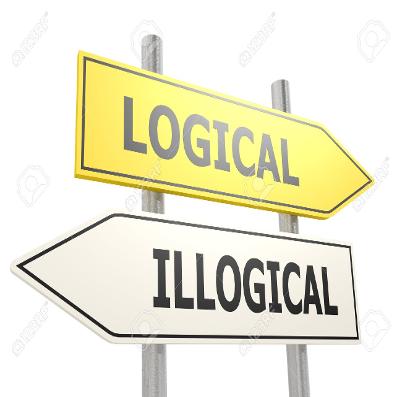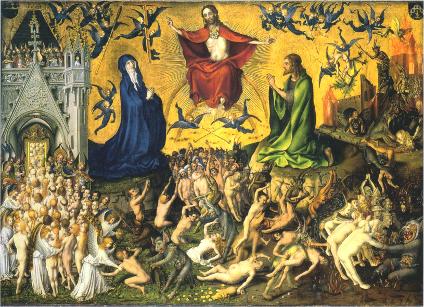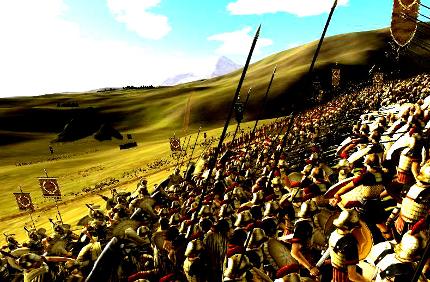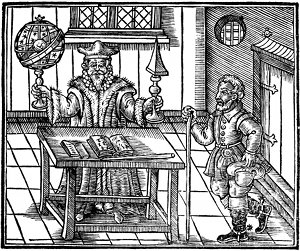Any attempt to trace the development of Langland's religious thought is guesswork, but enjoyable. He now, late in his poem, focuses on the life of Jesus Christ which is the starting point for many Christian teachers. One guess is that his early rejection of pardons led him away from the church and into a general examination of right and wrong. That threw up Love as the dominant virtue, which triumphed in the redemption story. Since that is the core of Christianity, was he led back to the institution? From here on, the fortunes of the institution are central.
He goes to church and promptly falls asleep again. He dreams;
That Piers the Plowman, painted bloodily,
Came in with a cross before the common people
And like in all his limbs to our Lord Jesus."
The Dreamer is confused by this figure and asks Conscience for an explanation. He is told that the figure is bearing the heraldic arms of Piers Plowman, thus signifying humanity, but that the real person is Christ, who has suffered. So Piers is at this point, Christ.
The Dreamer asks Conscience about the personal name Jesus, and the title, Christ. He is told that people get new titles as they grow in importance, and Conscience traces how Jesus progressed to the title 'Conqueror', which equates here with 'Christ'. This is a long passage which offers nothing very special till it gets to Christ's acquisition of the necessary kingly quality of craftiness. Then we get a piece that never appears in the gospels.
"But for all these precious presents, Prince Jesus
Was neither king nor conqueror till he grew by nature
Into the manner of a man of much cunning.
It becomes a conqueror to command such cunning.
He must be wily and wise who would lead a people.
And so Jesus studied more slights than I can tell of.
Sometimes he suffered and sometimes he hid him;
Sometimes he fought fiercely and fled at others.
He would grant goods and give health with them,
Life and limb as he liked and listed."
The lines read more like an extract from The Prince than any religious text, but 'cunning' probably means 'knowledge' so the devious element is absent. Langland's description of the major miracles and the crucifixion and the resurrection is in line with the gospel stories, but a bit of prejudice creeps in when he tells how the disciples failed to accept what the women, coming from the tomb, told them.
"For what a woman says is not well considered."
His comment is unfair, because the resurrection news was so extraordinary that it would never have been instantly believed, whoever said it. Langland tells the story of Doubting Thomas, and of Christ' s farewell to his disciples.
"Soon after he rose on high and went into heaven.
There is his home; and he will come finally
And reward him richly who reddit quod debit,
Who pays perfectly as plain truth bids him,
And he shall punish that person who pays badly,
And deal justice at Doomsday to dead and living.
The good go to godhead and to great joy,
And the wicked to dwell in woe without ending."
Describing the day of Pentecost, Langland uses the distribution of gifts by the Holy Ghost as a lead-in to the struggles that the church will experience. He has dire warnings, explaining why weapons will be needed.
"Antichrist and his army of the world shall grieve you
And confuse you, Conscience, unless Christ help you.
Feigners and flatterers and false prophets
Shall come to be curators over kings and barons.
Pride shall be pope and prince of Holy Church."
The gifts handed out are the skills an abilities needed in different activities, from humble manual ones to educated and authoritarian ones. The gifts were given.
"Some to divine and to devise and to divide numbers,
Some to use a compass craftily or colours artfully,
Some to see and to say what shall happen,
Both weal and woe, and tell it beforehand,
As astronomers an astrologers and wise philosophers,
And some to ride and recover what is wrongfully taken."
The overall purpose of this handing out is to enable the church to save souls, and it is told as an agricultural analogy. So the poem deals with seeds, and crops, and oxen and transport and storage. For instance;
"Grace gave Piers a team of four great oxen,
The first was Luke, a large beast and low-hearted;
And Mark and Matthew, each mighty creatures;
And joined with them John, the gentlest and fairest."
Grace also decreed that Piers should plant four seeds, representing principles that should govern human behaviour and are spoken of later on as the Cardinal Virtues. They are Prudence, Temperance, Fortitude and Justice.
To move on,click CHURCH ASSAULTED. To get back to the beginning click on HOME.
NOT EASY TO FOLLOW LANGLAND'S THOUGHT

HERALDIC DEVICES
WHAT A WOMAN SAYS....

THE JUDGEMENT

HIS ARMY OF THE WORLD

ASTROLOGER
